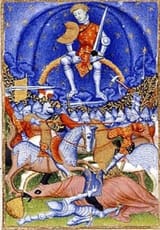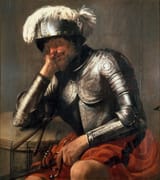Anonymous
8/25/2025, 2:56:22 PM
No.17948478
>>17948485
>>17948487
>>17948493
>>17948532
>>17948788
>>17949545
>>17949581
What did medieval christians think about the Gods of their ancestors?
>Roma, capital of the Christendom, residence of the Vicar of Christ
>founded by Romulus et Remus, sons of God Mars, grandsons of Jupiter, King and Father of Gods and Men
>Roma, capital of the Christendom, residence of the Vicar of Christ
>founded by Romulus et Remus, sons of God Mars, grandsons of Jupiter, King and Father of Gods and Men



